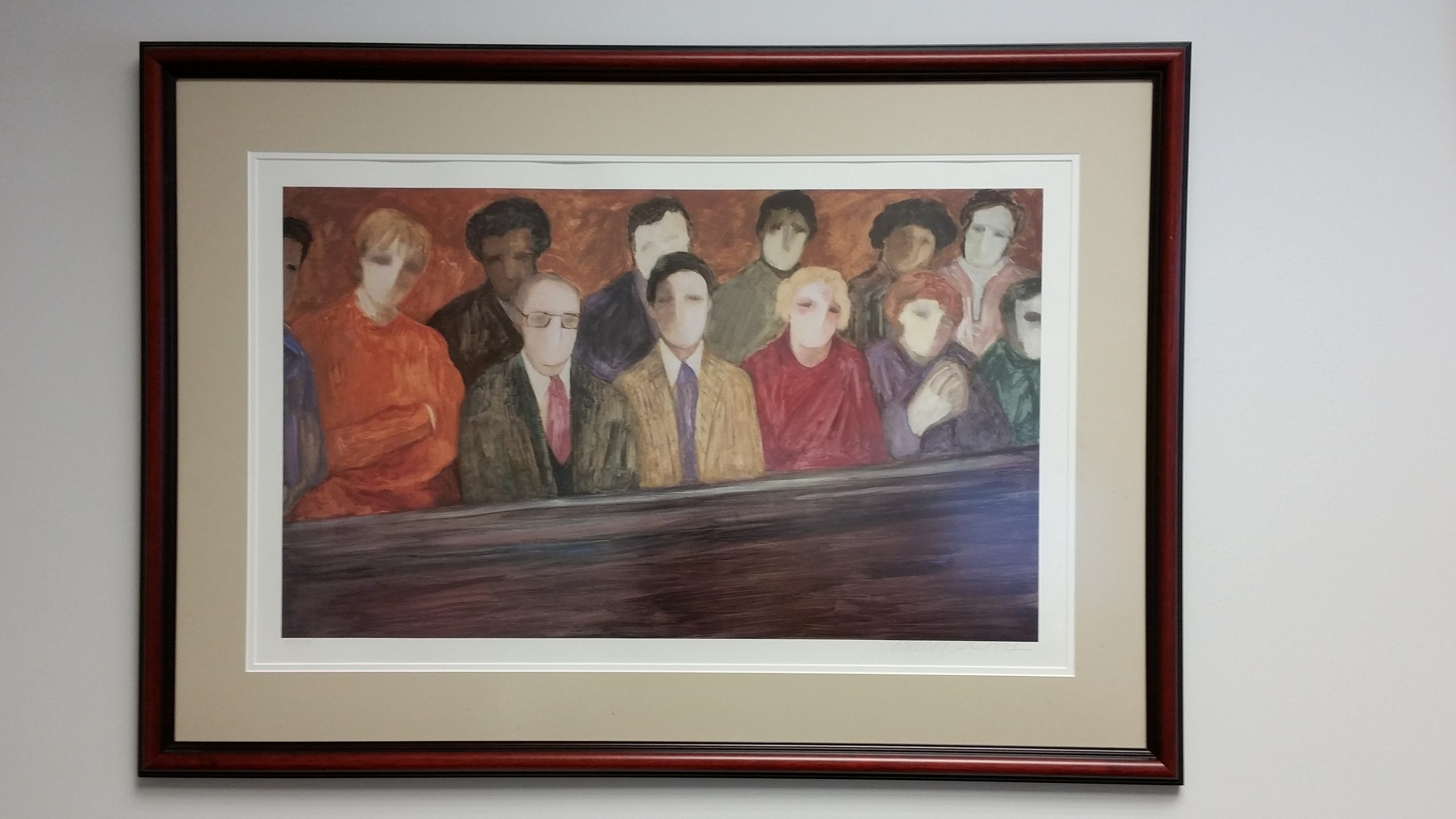- Free Consultation: (631) 352-0050 Tap Here to Call Us
Juries in Employment Cases

Hanging in the offices of the Long Island employment lawyers, Famighetti & Weinick, PLLC, is the painting “The Jury” by Barbara A. Wood. The painting serves as a reminder that most employment law cases may eventually wind up in front of a jury. Today’s blog discusses the role that the jury plays in employment cases.
Juries are referred to as the finders of facts. While judges preside over all aspects of court cases, judges generally make decisions only about law, not facts. For example, judges may decide what evidence the parties will be allowed to present to a jury or they may decide what a plaintiff must prove in order to win his or her case. But, the question of whether the plaintiff has offered evidence to meet the proof established by the judge is within the realm of the jury. In other words, in a car accident case, if the plaintiff must prove the defendant drove through a red light and hit the plaintiff’s car, the question of whether the light was red or not , is a determination for the jury. Of course, in the law there are always exceptions, as is the case here. Sometimes, the judge is called upon to determine some facts or sometimes a case is tried to a judge only, typically called a bench trial.
But, in the world of employment law, most cases will be a jury trial. For that reason, the employment lawyers at Famighetti & Weinick are always thinking about the jury, even from the very first moment we meet a potential client. We consider how jurors will sympathize with the facts of the case, whether the plaintiff is likable and credible, and what jurors may be thinking while hearing the facts of the case. This last point helps us prepare for the types of evidence we may need to find in discovery and the testimony we will have to elicit at deposition or trial. Throughout a client’s case, we revisit these, and other factors, to ensure the case is being prepared in a way which play well to the jury and help our chances in convincing the jurors that our presentation of the facts is the correct version. Indeed, employment cases are highly fact intensive and the employer and employee usually fiercely contest the facts of the case.
Much like the painting where the jurors’ faces are blurred out, juries are vague and amorphous entities in most cases until the jurors are “selected.” Selected is quoted, because that’s a bit of a misnomer. In federal court, where many employment cases are litigated, lawyers don’t “select” jurors. In fact, many federal judges on Long Island limit the involvement of lawyers in the jury selection process. Lawyers usually agree beforehand on the questions to be asked of the potential jurors, then the judge, or sometimes even the judge’s law clerk, will pose the questions to the jurors. Then, the lawyers have the opportunity to object to a potential juror being on the jury based on the juror answering a question in a way which suggests that the juror could not be fair and impartial. At the end of the question and answer process, most judges allow lawyers to use a few “peremptory challenges” in which each side’s lawyers can dismiss jurors without cause. Usually, lawyers will use these challenges to eliminate jurors they think will not be sympathetic to their side. For example, in representing employees, a plaintiff’s lawyer may choose to eliminate jurors who work in management or supervisory positions.
The Long Island employment lawyers, Famighetti & Weinick, PLLC, are experienced in presenting cases to juries. Not only have we won cases, but we have also taken the opportunity to talk to jurors in cases we’ve lost to learn from them and to prepare for the next time. Our lawyers use all of these experiences to prepare a strategy for each of our client’s cases and to build cases which play best to a jury. If you have a question about juries, employment law, or trials, contact the Long Island employment lawyers of Famighetti & Weinick, PLLC at 631-352-0050 or visit our website at https://www.linycemploymentlaw.com.








